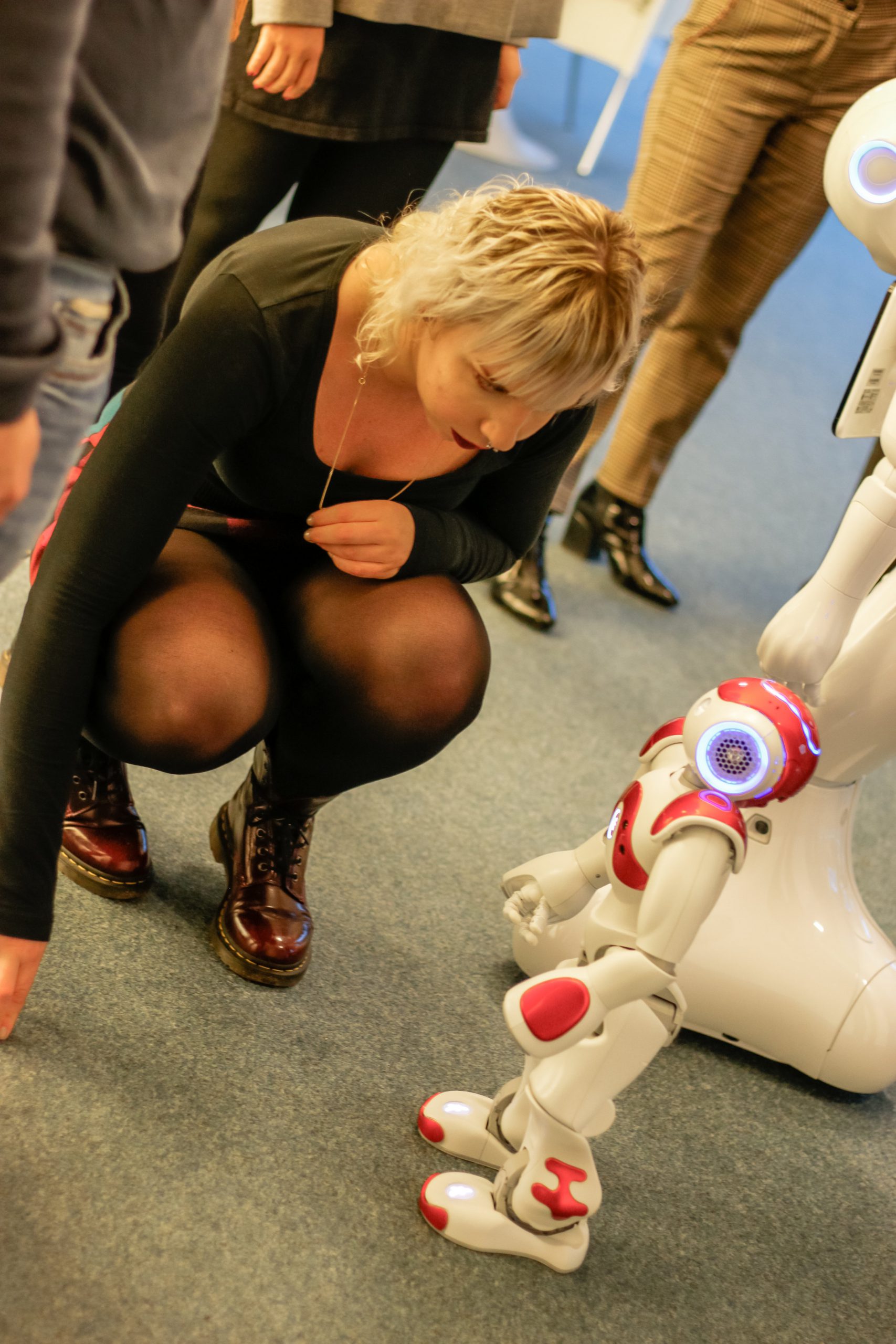Coming to a future near you: a classroom where humans and robots teach together! This next step in man and machine’s symbiosis owes thanks to advances in the field of social robotics. Rebecca Stower, a PhD candidate from Brisbane, Australia is studying at Jacobs University and investigates the field of social robotics in a truly interdisciplinary fashion. She is one of 15 international PhD candidates participating in Marie Curie’s ANIMATAS project, a program researching human-machine interactions. Rebecca is exploring questions such as: can we trust robots? And if so, can we trust them enough to teach us? Overseen by Prof. Dr. Arvid Kappas, our Dean, she combines her psychology expertise with that of engineers, programmers, and computer scientists to analyze the impact of imbuing robots with social behaviors on teaching, learning, and trust.

Rebecca Stower (Australia) and NAO | Photograph by Chandler Liu (Taiwan)
Rebecca works with humanoid robots such as Pepper and NAO, which can be programmed to recognize humans’ social behaviors, and in turn exhibit and attenuate their own social behaviors by way of machine learning. These social aspects are what differentiate your friendly neighborhood robo-teacher from the tablet or laptop you might use in the classroom. Two types of trust affect our perceptions of these robots: social trust (would you tell this robot your secrets?) and competency-based trust (is this robot capable and knowledgeable?). Rebecca is curious to see if when a robot makes a social or competence-based error, the corresponding type of trust falters. She’s found some research that suggests people like the robots that make mistakes more than correct ones, but trust them less. What does this say about us, humans? How can we use this finding to program a robot that is both likable and correct? By filming people during their interactions with robots, scientists like Rebecca can add to the growing repository of data that allows robots to “recognize” what their interaction partners are feeling and change their behavior accordingly. To make this venture relevant to education these robots must adjust their social behaviors in a way that not only limits undesirable reactions from humans (frustration, disinterest, anger), but also facilitates trust. Adding this dimension to an already complex set of equations requires a faithful model of trust for human-machine interactions — this is what Rebecca is working towards.
I wonder how findings in this field will shape the classroom of tomorrow. I wonder if students can learn to trust or connect with something so different from themselves. Will they feel less judged by a robot teacher? The goal will never be to replace human teachers with robots, but to use them as an additional helper to facilitate learning and provide equal access to quality education worldwide. With rapid changes in the way humans interface with machines, investing time and effort into research in the field of social robotics could prove essential for the future.
Are you interested in robotics, artificial intelligence, or psychology? Would you like to explore such questions? Check out the Psychology and the Intelligent Mobile Systems programs at Jacobs University, or come by to meet one of our robots!
By Myles Trifon-Calvopiña (USA) | Class of 2018
Watch our Robots interact:







Photographs by Chandler Liu (Taiwan) | Class of 2021
